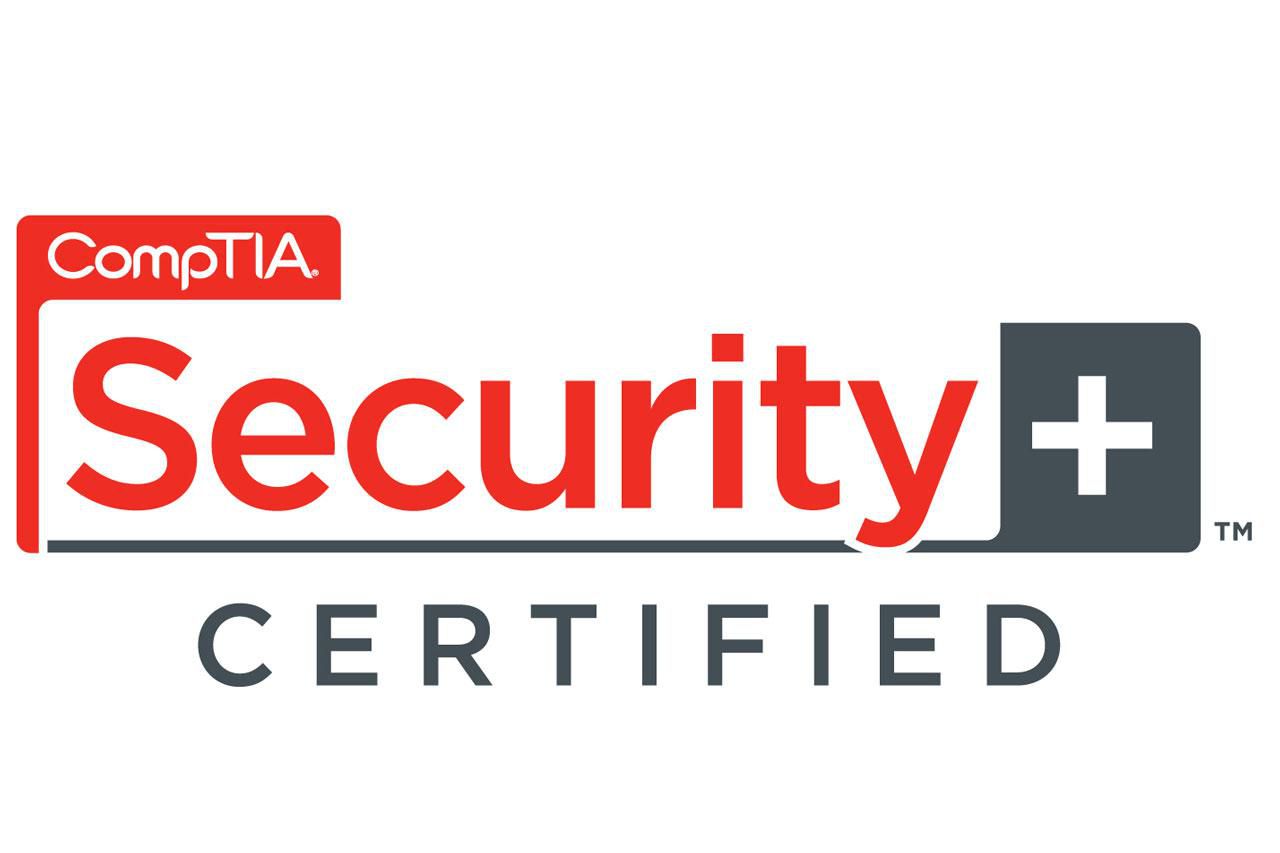As technology advances, so do cybercriminal tactics. This is why cybersecurity is paramount in this digital age. Demand for skilled cybersecurity professionals is soaring, with the field projected to grow by 33% from 2020 to 2030, surpassing most other occupations. This surge is fueled by ever-evolving cyber threats targeting businesses and individuals alike, alongside the imperative to safeguard data.
This guide explores entry-level cybersecurity roles, offering a roadmap to launch a successful career in this dynamic field. Whether you’re a recent graduate or a career switcher, we explore crucial steps, skills, certifications, and strategies to land your dream cybersecurity job. From crafting the ideal resume to excelling in interviews and surmounting challenges, this guide equips you with the knowledge and confidence to kickstart your cybersecurity journey.
Understanding Entry-Level Cybersecurity Roles
Grasping entry-level roles is the initial step toward a fulfilling career. These positions lay the groundwork for a successful cybersecurity journey and are vital in defending organizations from relentless cyber threats. Let’s explore these roles, their prerequisites, and how to excel.
Security Analyst

Security analysts are the digital guardians of an organization. They vigilantly monitor network traffic, swiftly detecting and addressing security threats. With a toolkit of tools and techniques, they investigate suspicious activities, collaborating with the security team to execute rapid, effective threat responses.
Required Skills and Qualifications
- Profound understanding of fundamental IT concepts, including networking, operating systems, and programming languages.
- Critical thinking and problem-solving abilities.
- Strong communication and interpersonal skills.
- A dedication to ongoing learning for cybersecurity updates.
Junior Penetration Tester
Junior penetration testers are the ethical hackers of the cybersecurity world. Their mission is to simulate real-world attacks to identify computer system and network vulnerabilities. Utilizing diverse techniques, they meticulously pinpoint and exploit weaknesses, thereby strengthening an organization’s security posture.
Required Skills and Qualifications
- Solid grasp of fundamental IT principles, encompassing networking, operating systems, and programming languages.
- Hands-on experience with penetration testing tools and techniques.
- Sharp critical thinking and problem-solving skills.
- Effective teamwork and communication skills.
Security Operations Center (SOC) Analyst
SOC analysts are the diligent defenders of an organization’s digital stronghold. They monitor and react to security incidents in real time, using various tools and techniques to scrutinize network traffic and systems, ensuring rapid identification and response to incidents as they happen.
Required Skills and Qualifications
- Comprehensive knowledge of fundamental IT concepts, including networking, operating systems, and programming languages.
- Proficiency in security incident response tools and techniques.
- Strong analytical and problem-solving abilities.
- Effective collaboration and communication skills.
IT Support Specialist with Security Focus
IT support specialists with a security focus are problem solvers dedicated to security. They offer technical assistance, prioritize security concerns, and maintain a secure environment by aiding users with issues like password resets, security software installation, and vulnerability resolution.
Required Skills and Qualifications
- A solid grounding in fundamental IT knowledge spanning networking, operating systems, and programming languages.
- Hands-on experience with security software and applications.
- Strong troubleshooting skills and problem-solving expertise.
- Effective communication abilities.
Effective Ways to Craft a Winning Resume
Your resume is your gateway to the cybersecurity world. This document introduces you to prospective employers, persuading them that you’re the ideal candidate. Crafting a solid cybersecurity resume involves highlighting skills, qualifications, and experiences relevant to your target job. Tailoring your resume to the specific role is essential for leaving a lasting impression. Here’s how to create a standout resume:
Emphasizing Relevant Skills and Certifications
Keyword Optimization:
- Begin by carefully analyzing the job posting.
- Identify keywords related to the specific cybersecurity role you’re interested in, such as “network security,” “incident response,” or “penetration testing.”
- Incorporate these keywords into your resume to demonstrate your alignment with the job requirements.
Highlighting Certifications: If you possess any relevant cybersecurity certifications (e.g., CompTIA Security+, Certified Information Systems Security Professional (CISSP), Certified Ethical Hacker (CEH)), prominently display them. Certifications validate your skills and demonstrate your commitment to the field.
Technical Skills: In the field of cybersecurity, technical skills are paramount. List your technical proficiencies, including familiarity with security tools and software, programming languages, and operating systems. This showcases your readiness for the role.
Showcasing Relevant Experience (Even if Limited)
Internships and Projects: If you have limited professional experience, highlight any internships, cybersecurity-related projects, or coursework demonstrating your practical knowledge and skills. Describe the specific tasks you performed and the results you achieved.
Transferable Skills: Consider the value of skills gained from other roles or experiences. For example, if you previously worked in customer service, emphasize your communication and problem-solving skills, which are highly valuable in cybersecurity.
Quantify Achievements:
- Whenever possible, quantify your accomplishments.
- Use metrics to showcase your impact.
- For instance, mention how you improved network security by implementing a new firewall rule that reduced vulnerabilities by a certain percentage.
The Importance of a Strong Cover Letter
Personalize Your Cover Letter: A well-crafted cover letter complements your resume by allowing you to explain your passion for cybersecurity, your motivation for applying to the specific company, and how your skills align with your needs. Address it to the hiring manager whenever possible.
Highlight Your Unique Qualities: Use the cover letter to convey your unique qualities, such as your determination to learn and adapt in the fast-paced cybersecurity environment, your commitment to ethical hacking practices, or your passion for staying up-to-date on emerging threats.
Demonstrate Cultural Fit: Explain why you fit the company’s culture well. Mention any shared values or missions that resonate with you. This shows that you’ve researched and are genuinely interested in the organization.
Helpful Strategies to Network in the Cybersecurity Community
Building a robust professional network opens doors to opportunities and offers valuable support and insights. Below are strategies to help you expand your network within the cybersecurity community:
Joining Online Forums and Communities
Online Forums: Join cybersecurity-focused online forums and communities, such as Reddit’s r/cybersecurity, Stack Overflow, or specialized forums like the ISC2 Community. Participate in discussions, seek advice, and share your knowledge and experiences. Networking in these spaces can lead to valuable connections and collaborations.
LinkedIn Groups: Explore LinkedIn groups dedicated to cybersecurity. These groups often feature discussions, job postings, and networking opportunities. Joining relevant groups and actively participating can help you connect with professionals in your field.
Attending Cybersecurity Conferences and Meetups
Local Meetups: Look for cybersecurity meetups and events in your area. Websites like Meetup.com often list such gatherings. These events offer a chance to connect with peers, both experienced professionals and newcomers.
Industry Conferences: Consider attending major cybersecurity conferences like DEF CON, Black Hat, RSA Conference, etc. While these events may require travel, they offer unparalleled networking opportunities and a chance to learn from leading experts in the field.
Virtual Conferences: In recent times, many cybersecurity conferences have gone virtual. These virtual events can be more accessible and cost-effective, allowing you to participate and network from home.
Leveraging Social Media Platforms
LinkedIn: Optimize your profile, connect with professionals, and showcase your cybersecurity expertise.
X: X (formerly Twitter) is a lively hub for cybersecurity dialogues. Follow experts, organizations, and critical hashtags like #cybersecurity, #InfoSec, and #ethicalhacking. Join discussions and share insights.
GitHub: For a focus on technical aspects, create a GitHub account. Share coding projects and collaborate on open-source cybersecurity tools.
Connecting with Professors, Mentors, and Alumni
Academic Contacts: If you’re pursuing a degree or certification in cybersecurity, build relationships with professors and instructors. They can provide guidance, connect you with resources, and even recommend you for internships or research opportunities.
Mentors: Seek out cybersecurity professionals who can serve as mentors. Mentors can offer valuable career advice, share their experiences, and guide skill development.
Alumni Networks: Connect with alums from your educational institution who have entered the cybersecurity field. Alum networks often provide opportunities for mentorship and networking events.
Preparing for Interviews – A Step toward Your Cybersecurity Career
Securing an interview for an entry-level cybersecurity position is a significant achievement. Thorough preparation is required to take advantage of this opportunity and maximize your chances of success. Here’s how to prepare effectively for your cybersecurity job interview:
Researching the Company and the Role
Company Research: Begin by thoroughly researching the company you’re interviewing with. Understand their mission, values, and the specific cybersecurity challenges they may face. Familiarize yourself with recent news or security incidents related to the organization.
Role Research:
- Review the job description in detail.
- Identify the key responsibilities, required skills, and qualifications.
- Prepare to explain how your skills and experience match these requirements.
Common Entry-Level Cybersecurity Interview Questions
Technical Questions: Expect questions about fundamental cybersecurity concepts, tools, and techniques. These may include queries about encryption, firewalls, malware, and intrusion detection systems. Review your technical knowledge and be ready to explain concepts clearly.
Behavioral Questions: Prepare for behavioral questions that assess your soft skills and problem-solving abilities. For example, you might be asked when you worked on a team project, faced a challenging problem, or resolved a conflict.
Situational Questions: Be ready to respond to situational questions that assess your ability to handle security incidents or breaches. Employ the STAR (Situation, Task, Action, and Result) method to structure your answers effectively.
Demonstrating Problem-Solving Skills
Scenario-Based Questions: Employers may present you with hypothetical cybersecurity scenarios and ask how you would respond. Approach these questions methodically by identifying the threat, proposing countermeasures, and explaining your decision-making process.
Use of Technical Knowledge: Demonstrate your problem-solving skills by applying your technical knowledge to real-world situations. For example, if asked about mitigating a DDoS attack, outline your steps, such as traffic analysis and implementing mitigation techniques.
Showing a Passion for Learning and Growth
Continual Learning:
- Highlight your commitment to staying updated in the cybersecurity field.
- Mention any online courses, certifications, or self-study efforts you’ve undertaken.
- Emphasize your passion for keeping pace with evolving threats and technologies.
Adaptability: Cybersecurity is a rapidly changing field. Showcase your adaptability by discussing how you’ve quickly learned and applied new skills or technologies in your previous experiences or coursework.
Growth Mindset: Express your willingness to learn from setbacks and challenges. Please share examples of times when you encountered difficulties, how you addressed them, and what you learned from those experiences.
How to Gain Practical Experience
Practical experience is invaluable in cybersecurity, boosting your skills and employability. To gain hands-on experience:
Internships and Volunteering
Internships: Seek cybersecurity internships in government agencies, corporations, and non-profits. These provide structured learning, real-world challenges, and insights into industry best practices.
Volunteer Work: Consider volunteering your cybersecurity skills for non-profit organizations or community groups. Many non-profits need more resources to maintain robust security measures, making them vulnerable targets. Your assistance can be precious in securing their digital assets while gaining practical experience.
Participating in Capture the Flag (CTF) Competitions
CTFs: Capture The Flag (CTF) competitions are cybersecurity challenges examining problem-solving and technical prowess. Tasks may include exploiting vulnerabilities, analyzing malware, and decrypting messages. Numerous online CTFs allow individual or team participation.
CTF Advantages: CTFs let you apply your skills competitively and enhance critical thinking. You’ll learn new techniques and explore diverse cybersecurity areas. Employers often value CTF experience when hiring for entry-level roles.
Building a Home Lab for Hands-On Practice
Home Lab Setup: Establish a home lab environment to experiment with cybersecurity tools and techniques. Use virtualization software like VirtualBox or VMware to create virtual machines simulating real-world scenarios.
Practice Scenarios: In your home lab, practice setting up firewalls, configuring intrusion detection systems, conducting vulnerability assessments, and simulating security incidents. Experiment with different operating systems and network setups to diversify your skills.
Open-Source Tools: Leverage open-source cybersecurity tools like Wireshark, Metasploit, Snort, and Kali Linux to enhance your hands-on experience. These resources offer valuable learning and practice opportunities.
Networking and Collaboration
Join a Cybersecurity Club: Many universities and colleges have cybersecurity clubs or student organizations that offer hands-on training, workshops, and collaborative projects. Joining such clubs provides opportunities to work with peers who share your interests.
Online Communities: Engage with cybersecurity communities, forums, and Discord/Slack channels. Work on projects together, share your knowledge, and learn from others. Building a network of like-minded individuals can lead to valuable practical experience opportunities.
How to Leveraging Job Search Platforms
Job search platforms are invaluable tools when seeking entry-level cybersecurity positions. They provide access to a wide range of job openings and opportunities. Here’s how to make the most of job search websites and professional platforms like LinkedIn:
Navigating Job Search Websites
Selecting Job Search Engines: Utilize popular job search engines like Indeed, Glassdoor, Monster, and LinkedIn Jobs. These platforms aggregate job listings from various sources, making finding relevant cybersecurity job openings easier.
Advanced Search Filters: Take advantage of advanced search filters to narrow down your job search. Filter results by location, job type, salary range, and specific keywords like “entry-level cybersecurity” or “security analyst.”
Company Research: When identifying potential employers, research their company culture, values, and recent cybersecurity initiatives. This information can be valuable in crafting tailored job applications and interviewing preparation.
Creating Job Alerts
Set up Job Alerts: Most job search websites allow you to create job alerts based on your criteria. Set up alerts for specific job titles or keywords related to cybersecurity. This ensures you receive notifications when new job openings matching your interests become available.
Regularly Review Alerts: Check your email or notifications regularly for updates on new job listings. Being among the first to apply for a job can give you a competitive advantage.
Making Use of LinkedIn
Optimize Your LinkedIn Profile:
- Make sure your LinkedIn profile is complete and professional.
- Highlight your skills, certifications, and any relevant coursework or projects.
- Use a professional photo and write a compelling headline and summary emphasizing your cybersecurity passion.
Follow Relevant Companies: Follow cybersecurity companies and organizations on LinkedIn. This lets you stay informed about their activities, job openings, and industry trends.
Connect with Professionals: Connect with cybersecurity professionals, including those who work at your target companies or in roles you aspire to. Personalize your connection requests with a brief message expressing your interest in their work.
Engage in Discussions: Engage with cybersecurity content, join relevant groups, and participate in discussions. Sharing your insights and connecting with professionals in the field can lead to valuable networking opportunities.
Industry Events: Attend virtual industry events, webinars, and conferences related to cybersecurity. These events often provide networking opportunities and the chance to connect with potential employers.
How to Overcome Challenges and Rejections in your cybersecurity career
The path to a cybersecurity career is challenging, and rejection can be a part of the journey. However, how you handle setbacks can define your success in the long run. Here’s how to overcome challenges and handle rejections positively:
Handling Rejections Positively
Maintain a Growth Mindset: Embrace rejection as an opportunity for growth and learning. Understand that rejection does not define your worth or potential. Keep your focus on your long-term goals.
Refine Your Approach:
- After a rejection, take some time to reflect on the interview or application process.
- Consider what went well and what areas could use improvement.
- Use this feedback to refine your approach for future applications.
Continuously Improving Skills
Lifelong Learning: The cybersecurity field is ever-evolving. Commit to continuous learning by staying updated on the latest threats, technologies, and best practices. Consider pursuing advanced certifications or courses to enhance your skills.
Skill Diversification: Broaden your skill set by exploring different aspects of cybersecurity. For example, if you initially focused on network security, delve into areas like penetration testing, cloud security, or incident response to make yourself more versatile.
Seeking Feedback from Interviews
Request Feedback: After interviews, feel free to ask interviewers for feedback, especially if you were not selected for the position. Constructive feedback offers valuable insights for improvement.
Implement Feedback: Act on the feedback you receive. If interviewers mention specific areas where you fell short, address those weaknesses in your skillset or interview approach.
Staying Persistent and Resilient
Stay Persistent: Rejections are a natural part of the job search process. Maintaining persistence and applying for positions that align with your career goals is essential.
Develop Resilience: The cybersecurity field can be challenging, with complex problems to solve and high-pressure situations. Develop resilience by gracefully handling setbacks, maintaining a positive attitude, and learning from each experience.
Leverage Your Network: Lean on your professional network for support during challenging times. Reach out to mentors, peers, or professionals who have faced similar obstacles. They can offer guidance and encouragement.
Final Note
We have explored the realm of entry-level cybersecurity careers. We have also dived into the complexities of this dynamic profession throughout this post, from comprehending the various opportunities and constructing a winning resume to getting practical experience and navigating job search sites.
We’ve covered networking, interview preparation, and tackling obstacles in your cybersecurity journey. Your passion and dedication to ongoing learning will be your compass as you continue your cybersecurity career pursuit. The road to your dream job may have challenges, but you’re constructing the foundation for a fulfilling and influential career with every step.











